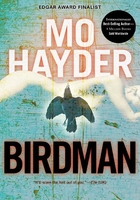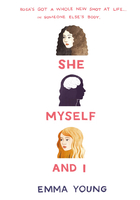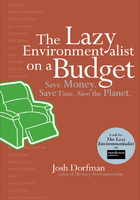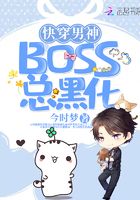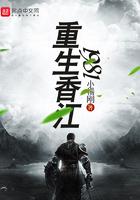3
Can't vs. Can
One of the most important steps to overcoming obstacles is changing one's language. Out of a desire to help other people move forward, I've often written about my struggles with depression on my blog. Because of this willingness to be open, I get a lot of emails from people asking for help, and I give advice whenever possible. Every now and then, I'll get pushback emails splattered with one of my least favorite words in the English language-can't.
I can't do that. I just can't. I've already tried and failed.
I can't. I can't talk to anybody. I can't overcome this.
I can't believe that things will ever get better. I can't.
I can't. I can't. I CAN'T!
And in the end, I have to agree with them. They can't do it. But it's probably not because they're physically unable to do it; instead, it's because their disbelief prevents them from seeing any alternative.
They might put forth some minimal effort to convince other people that they're trying, but inside they've already decided that whatever they can do will not work. Whatever their doctor, their therapist, their friend, or a book says simply isn't going to work, because they've already decided that it won't work.
To be clear, I'm not talking about having doubt. I'm talking about cold, hard disbelief. Doubt contains some measure of faith, while disbelief is the total and absolute lack of hope. The doubter is willing to cautiously hike a new trail, while the disbeliever refuses to believe there even is a trail.
Or it's like a person who has a medical problem but doesn't believe in the power of doctors or medicine. This person can complain about his symptoms, sincerely desiring relief, but if he refuses the medicine simply because he doesn't believe it will work, it's very unlikely that he will be healed.
Or it's like a person who believes that she can't run a marathon. If she doesn't believe that she could ever run a marathon, she probably never will. Why would she? She would be too skeptical to sign up, let alone train for one.
I could tell you over and over and over again that you can do this or accomplish that, but my encouragements are all meaningless unless you believe them.
In his book No Excuses, Brian Tracy makes this excellent point:
Now, how can you tell if your favorite excuse is valid or not? It's simple. Look around and ask, "Is there anyone else who has my same excuse who is successful anyway?"
When you ask this question, if you are honest, you will have to admit that there are thousands and even millions of people who have had it far worse than you have who have gone on to do wonderful things with their lives. And what thousands and millions of others have done, you can do as well-if you try.[4]
If you want to move forward in life, the first thing you need to do is replace can't with can. No matter how bad things might seem, you must become an optimist about your situation. As Winston Churchill once said, "For myself I am an optimist-it does not seem to be much use being anything else."[5]
"But what if I literally can't?" you might ask. "What if I'm not using my situation as an excuse?" That's a perfectly valid question. The man who has lost his right arm is certainly not making an excuse when he says that he can't write with his right hand. The woman who has a paralyzing fear of heights is not making an excuse when she says that she can't climb a ladder to get something on the edge of the roof. And the man who is uncomfortable in front of crowds is not making an excuse when he says that he's probably not the best person to give a presentation.
In those legitimate situations, I would ask you to consider focusing on what you can do instead of what you can't do. The man who is missing his right arm can't write with his right hand, but perhaps he can learn how to write with his left hand or use a computer. The woman who has a fear of heights doesn't need to climb a ladder to get whatever is on the edge of the roof; she can use something to help dislodge it or even ask for help. The man who is uncomfortable in front of crowds can create a presentation that draws the focus of the audience on the media presented rather than on himself.
Perhaps we can't spend millions on humanitarian efforts, but we can use our social media capital to spread the word about a good cause. Perhaps we can't express our sympathies in the most eloquent way, but we can render simple service that helps lift the burden of another. Perhaps we can't offer healing medicine to someone who is suffering, but we can offer our heartfelt empathy.
As we strive to replace can't with can, there may be instances when what we want to do is very different from what we can do. In those situations, what we can do may seem ineffectual. But seen from a larger perspective, doing what we can do may actually turn the tide in our own personal battles.
Such was the case with the starving orchestra of Leningrad.
4
The Leningrad Symphony
It was the summer of 1941, and the Nazis were tearing through Russia, destroying everything in their path. Adolf Hitler pompously declared that by August 9, 1942, he and the Nazis would celebrate the taking of Leningrad (the present-day St. Petersburg) in the city's Hotel Astoria.
By early September, the Nazis had surrounded Leningrad, blockading the city and cutting off its main arteries for food, supplies, communication, and reinforcements. But the city's three million inhabitants (which included roughly four hundred thousand children) refused to surrender. Thus began an 872-day siege of catastrophic death and famine. By the war's end, the number of deaths in Leningrad outnumbered those who died in Hiroshima and Nagasaki, combined.
In the midst of such hellish conditions, the orchestra of Leningrad planned a counteroffensive. Instead of focusing on what they couldn't do, they focused on what they could do. And what could they do? They could make music.
In 1942, the remaining members of the orchestra resolved to perform the newly completed Symphony No. 7 by Dmitri Shostakovich, a native of Leningrad, and broadcast it-on loudspeakers-toward enemy lines.
The score-both long and complex-called for a ninety-piece orchestra, and only half of the members of the Leningrad orchestra had survived the horrors of the siege. And despite extra rations, many of the musicians fainted from exhaustion during rehearsals. They had strength enough to play through the whole piece only once-three days prior to their big performance.
The performance itself was on August 9, 1942-the very day on which Hitler had planned to celebrate the capture of Leningrad.
In her book Leningrad: The Epic Siege of World War II, 1941-1944, Anna Reid wrote, "On the morning of the concert…General Govorov mounted a special Operation Squall, so as to prevent disruption from air raids or barrages. Inside the grandee-packed auditorium the performance itself was ragged, but the atmosphere was overwhelming. 'Some wept,' remembered a woman in the audience."[6]
In an interview, Kseniia Makianovna Matus, an oboist in the Leningrad orchestra, shared her recollection of the symphony's grand finale: "When the piece ended, there was not a sound in the hall-silence. Then someone clapped at the back, then another, then there was thunder. It was improper to embrace, but we wanted to."[7]
Karl Eliasberg, the director and conductor of the symphony, said, "People stood and cried.…They knew this was not a passing episode but the beginning of something. The hall, the homes, the front, the whole city was one human being seizing his victory over the soulless [Nazi] machine. And we had it, in the music" (emphasis added).[8]
Long after their triumphant performance, Matus related a remarkable account that Eliasberg had shared with her:
Several years later, after the war was over, the Board of Directors sent for Karl Il'ich and said: "Karl Il'ich, some Germans are here and they want to meet you." "Me!" he said. "They tried to kill us! So many people died, so many horrible things." He was half German, half Jewish. But they said to him: "Karl Il'ich, it's an order." So someone was told to accompany him, and he went to the Astoria. He sat down and was then approached by some men from a nearby table.
"Karl Il'ich, hello. We are very glad to meet you and we want to express our gratitude."
"For what?"
"For the symphony. We were sitting not far from you, in the trenches. We were bombing you, and the planes were flying-our airfield was there. After all, we had orders to destroy Leningrad. But we sat in a trench and listened to your symphony. And we burst into tears and realized: "Whom are we bombing? We will never be able to take Leningrad because the people here are selfless."[9]
When I get really discouraged, I often think about the Leningrad orchestra. They were starving, dying, and surrounded by forces that wanted to destroy them. And yet, in the face of such hellish evil, they chose to focus on what they could do. Instead of thinking "We're not soldiers, we can't fight back" or "Everything is against us, we can't win," they focused on "can."
"We can play music."
Think of it! Instead of curling up in a corner and giving up on life, they played music. And as baffling as it may seem to historians and military generals, their music was a force that helped to turn the tide of the war. Focusing on the things we can't do will defeat us. Focusing on the things we can do will lead us to victory.
There can be no miracle without belief. In a very real way, belief is the fuel of miracles.
Consider what would happen if we believed in the encouragement and advice of others. What if, instead of constantly tearing ourselves down, we believed the best about ourselves? What if we believed that we could achieve our dreams, and then worked to do so? Imagine the power of these beliefs!
Instead of focusing on the impossible, focus on what is possible. Instead of giving added attention to what you can't do, give strength and power to what you can do. I promise that doing so will turn the tide in your favor as you battle your way forward.
5
Transforming a Curse into a Blessing
The first thing you must realize is that your biggest problems can actually be your greatest blessings. The sooner you understand and embrace that truth, the sooner you will gain strength to overcome your challenges.
In his book The Road Less Traveled, M. Scott Peck uses the Greek myth of Orestes and the Furies to demonstrate how some of our greatest struggles can become some of our greatest blessings.

